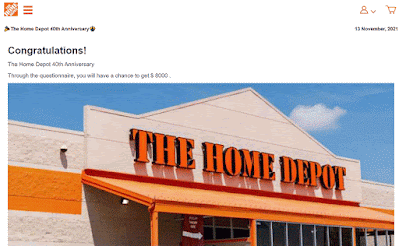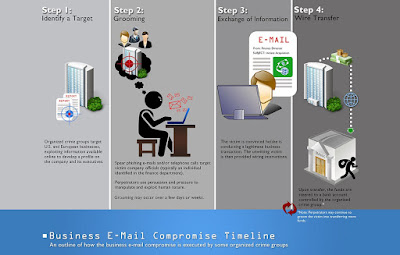 I'm pretty sure this is the same WhatsApp® scammer I wrote about before.
I'm pretty sure this is the same WhatsApp® scammer I wrote about before.
Her "name" is Anna, and her number on WhatsApp is +1 (213) 828-6634.
She mentions Onin Staffing, which is a real employment agency, with branches all over the United States (ONINSTAFFING.COM).
But this is just part of her game.
The scam domains this time around, are:
> 📛💣NOETICMARKETERC.COM💣📛 <
> 💣📛 NOETICMARKETERA.COM📛💣 <
Anna included a short voice message this time. Here's a link to the audio file. She sounds Asian:
>>> ANNA, The SCAMMER <<<
The full text is below....Rich with lots of scammy details. And, once again, it all seems quite legit.
But I just had to highlight these two items, because they are HILARIOUS!
- "OK. May I know your name maybe we can be good friends in future..." 😀😂😀
- "After all the work is done, you can immediately withdraw the commission profit you deserve." 😂😀😂

[ANNA -- THE SCAMMER -- 11:33 AM] +1 (213) 828-6634: Hello, my name is Anna. I work for Noetic Marketer and Madison from Onin Staffing told me that you are interested in the part time job we are offering, please let me know when you are available and I would like us to keep a good communication!
[ANNA -- THE SCAMMER -- 12:54 PM] +1 (213) 828-6634: Nice to see you. My name is Anna.
[ME] : Hello. I am ready to get started. Any more details for me? RSVP. Thanks.
[ANNA -- THE SCAMMER -- 12:55 PM] +1 (213) 828-6634: Yes, I will share job descriptions with you
[ANNA -- THE SCAMMER -- 12:57 PM] +1 (213) 828-6634: I would like to introduce you to a part-time job. Work from home kind of thing. You can do it in 30-60 minutes a day. After two consecutive days of work, you will receive a base salary of $100-400.
[ANNA -- THE SCAMMER -- 1:01 PM] +1 (213) 828-6634: This part-time job does not require any skills or experience. You only need a mobile phone or computer to complete this job at any time and in any area you feel comfortable. It will also bring you a good income.
[ANNA -- THE SCAMMER -- 2:02 PM] +1 (213) 828-6634: Honey, are you busy?
[ANNA -- THE SCAMMER -- 4:45 PM] +1 (213) 828-6634: Do you have time?
[ME] : Always busy. But I am here, and reading all that you are sending me. Need all necessary information on your opportunity....Thank you....
[ANNA -- THE SCAMMER -- 4:48 PM] +1 (213) 828-6634: Our job is to help merchants on large e-commerce platforms such as Amazon/eBay maintain and optimize their products, thereby helping them maximize the retail value of their products so that their products will be displayed first when consumers purchasing goods.
[ANNA -- THE SCAMMER -- 4:51 PM] +1 (213) 828-6634: Our company uses artificial intelligence to connect merchants’ products to our workbench, helping them maintain their products faster. Generally, it takes 1-7 days to complete maintenance on a product. Using the artificial intelligence developed by our company, all employees can complete the maintenance of a product in 1-5 seconds. You can think of it as us making money by compressing time through AI.
[ANNA -- THE SCAMMER -- 4:55 PM] +1 (213) 828-6634: The work is simple, as I explained we only need to click on "Start" and then "Submit", and the platform AI system will automatically utilize advanced algorithms to interact with online shopping platforms and handle the rest of the work. Our job is to repeat the process seamleassly.
[ANNA -- THE SCAMMER -- 5:09 PM] +1 (213) 828-6634: Can you understand clearly when I introduce it this way? If you have any questions you can ask me right away.
[ANNA -- THE SCAMMER -- 5:37 PM] +1 (213) 828-6634: we can earn a salary and also a daily commission from this job .
The first part is a fixed salary. If you complete 3 sets of tasks every day and work for 2 consecutive days, you will receive a salary of 100-400 US dollars. The difference in salary is based on the employee level.
[ANNA -- THE SCAMMER -- 5:54 PM] +1 (213) 828-6634: The second part is that you will get a commission for every product maintenance you complete, depending on the value of the products matched in your account, you can get a commission of 30-1200 US dollars per day, which also depends on your employee level. The higher the employee level, the more commissions you get.
[ANNA -- THE SCAMMER -- 6:21 PM] +1 (213) 828-6634: Can you understand well what I am explaining?
[ANNA -- THE SCAMMER -- 7:28 PM] +1 (213) 828-6634: Junior employees can complete three sets of tasks per day, 40 times per set of tasks, and can receive 100 USDT for completing work for two consecutive days. Intermediate employees can complete four sets of tasks per day, 45 times per set of tasks, and can receive 200 USDT for completing work for two consecutive days. Senior employees can complete five sets of tasks per day, 50 times per set of tasks, and can receive 300 USDT for completing work for two consecutive days. Mentor employees can complete six sets of tasks per day, 55 times per set of tasks, and can receive 400 USDT for completing work for two consecutive days.
[ANNA -- THE SCAMMER -- 7:35 PM] +1 (213) 828-6634: I hope you can understand my work. May I know what your occupation is? I will be able to communicate better without interrupting your working hours.
[ANNA -- THE SCAMMER -- 9:54 PM] +1 (213) 828-6634: I understand you are busy today. We can discuss further tomorrow. good night.
[ANNA -- THE SCAMMER -- 11:05 AM] +1 (213) 828-6634: Good morning
[ANNA -- THE SCAMMER -- 12:43 PM] +1 (213) 828-6634: Hi, Do you have time?
[ANNA -- THE SCAMMER -- 12:45 PM] +1 (213) 828-6634: Can you understand the work we discussed yesterday? If you don't understand, you can ask me.
[ME] : Hi. So what do you need from me right now? I'd like to get started ASAP...
[ANNA -- THE SCAMMER -- 1:00 PM] +1 (213) 828-6634: May I know your name maybe we can be good friends in future.
[ANNA -- THE SCAMMER -- 1:01 PM] +1 (213) 828-6634: My name is Anna.
[ANNA -- THE SCAMMER -- 1:15 PM] +1 (213) 828-6634: There are different commissions for each employee at different levels. Beginner commission is 0.45%.
Intermediate commission is 0.65%. Advanced commission is 0.85%. Mentor commission is 1.05%. Well let me know when you have time. We can start practicing. Don't worry, the training can be completed in 30-45 minutes. After all the work is done, you can immediately withdraw the commission profit you deserve.
After you register on our job website let me know and I will guide you best.
You can click on the link below and register a work account using the invitation code i send you.
- Workbench Website: Noeticmarketera.com📛💣📛
- Invitation code:P9HW4G 📛💣📛
If you have 30-45 minutes now we can start the training session now.
There are different commissions for each employee at different levels. Beginner commission is 0.45%. Intermediate commission is 0.65%. Advanced commission is 0.85%. Mentor commission is 1.05%.
OK. May I know your name maybe we can be good friends in future...
The "training session" mentioned in the above 👆 WhatsApp conversation is not only a complete waste of time, but it's also how the scammers trick you into giving them sensitive information about yourself.
These scammers like to use free phone numbers, of course.
So I've noticed that Google® has made some changes, new moves in their never-ending war against the spam + scam crowd.
- Getting a free phone number with Google Voice used to be free.
Now
you have to have an "Existing US-based mobile phone number" to get one.
I don't know of any free mobile-phone plans in the USA. If you, the
reader, know of any, please add a comment below with details. And thank
you!
- And
if you want to create a new GMail account, you'll have to confirm that
you're not a robot. How? A text message sent to your not-free mobile phone number, of course.
Google (Gmail) accounts with the right username can (the part before the "@" symbol) do much to aid tricksters in their craft.
Ending the 100% free nature of these accounts is the right thing to do. Hopefully, all you honest folks out there have already created all the Google accounts you need...Labels: Employement, Employment_Agency, GMAIL, Google, Google_Voice, Internet_Scam, Internet_Scams, Job_Opportunity, jobs, Mobile, scam, scams, Staffing, WhatsAPP, WhatsAPP_Scam, WhatsAPP_Scams, WhatsAPP.com, Work



















